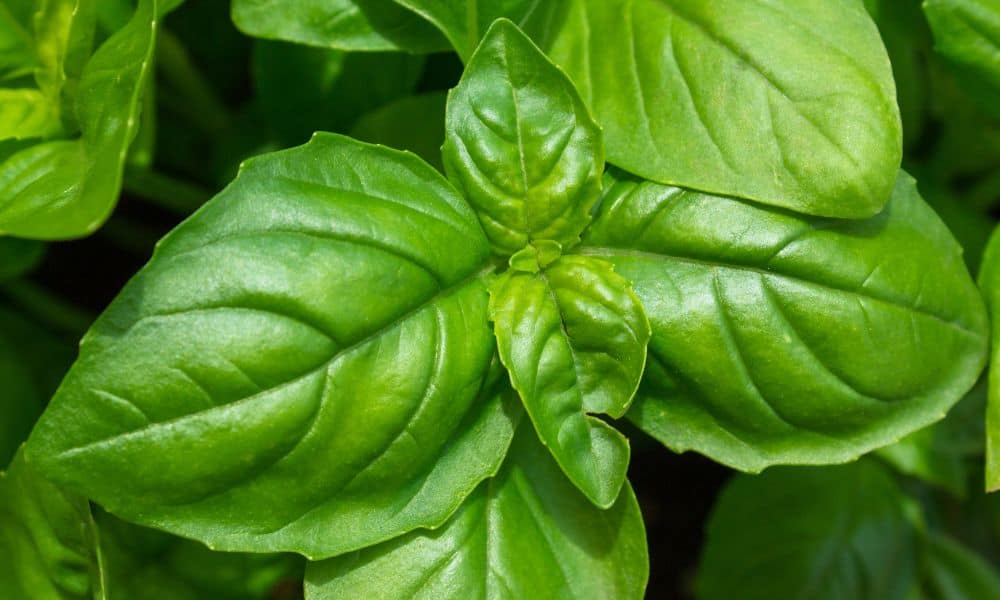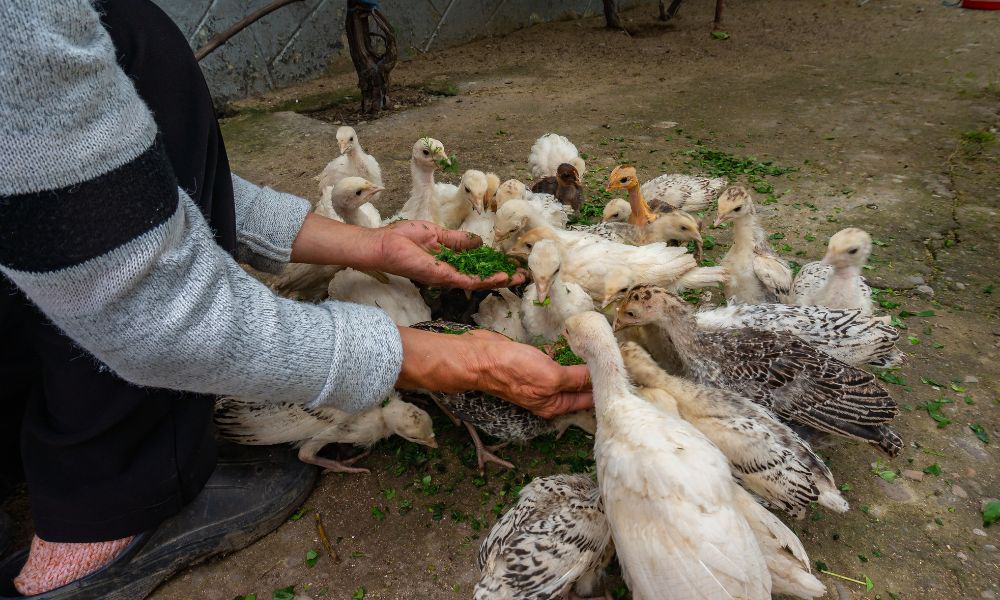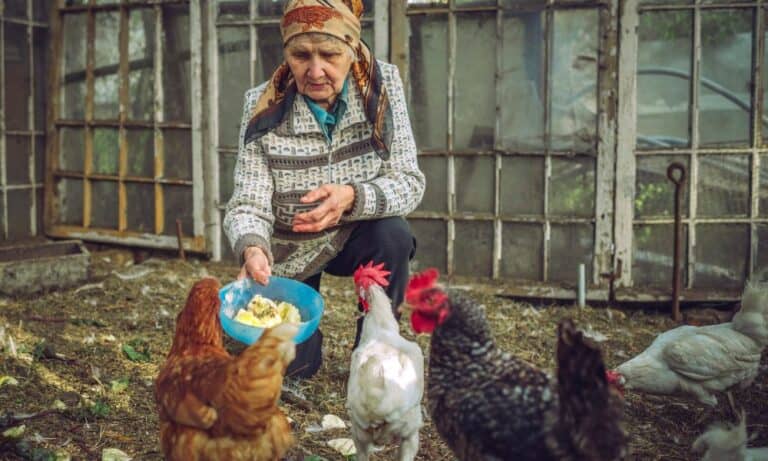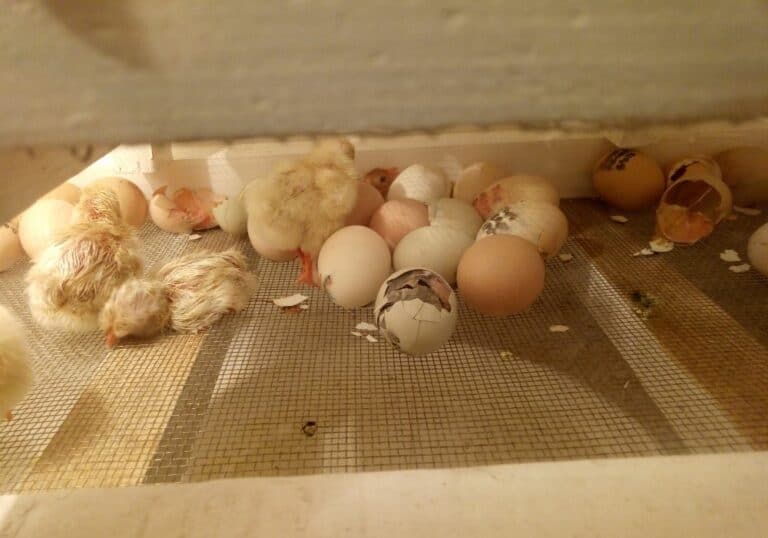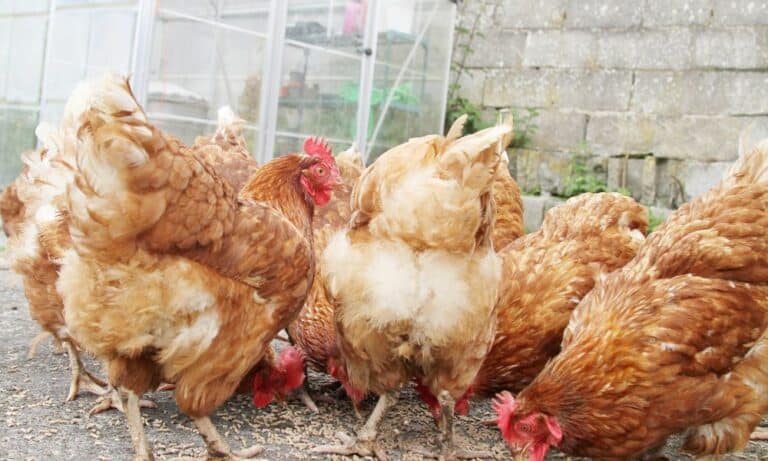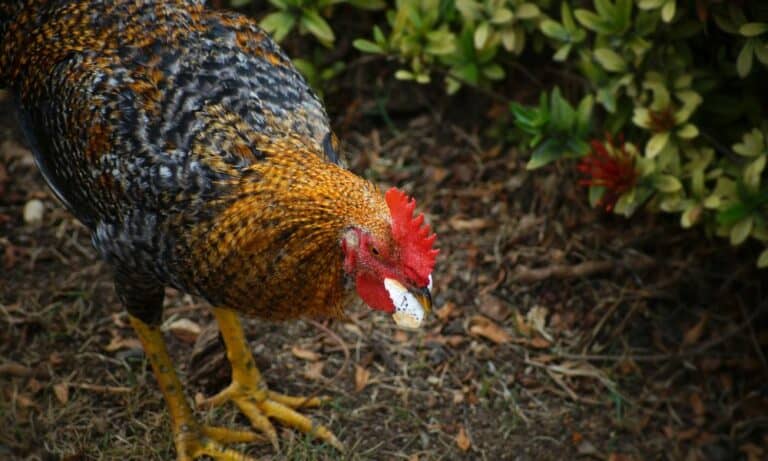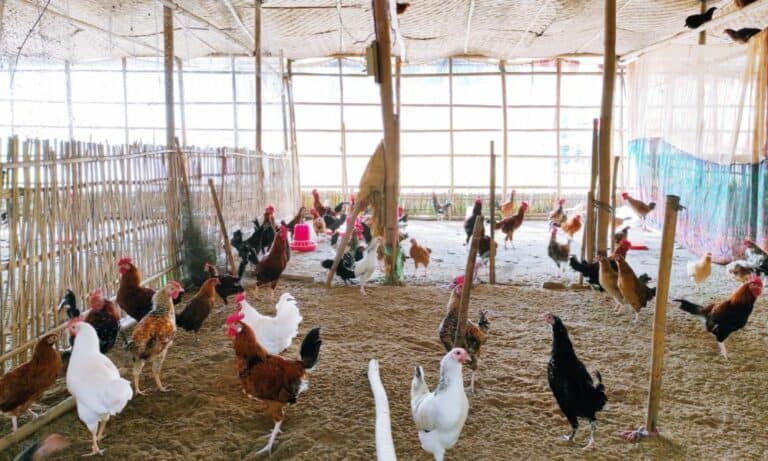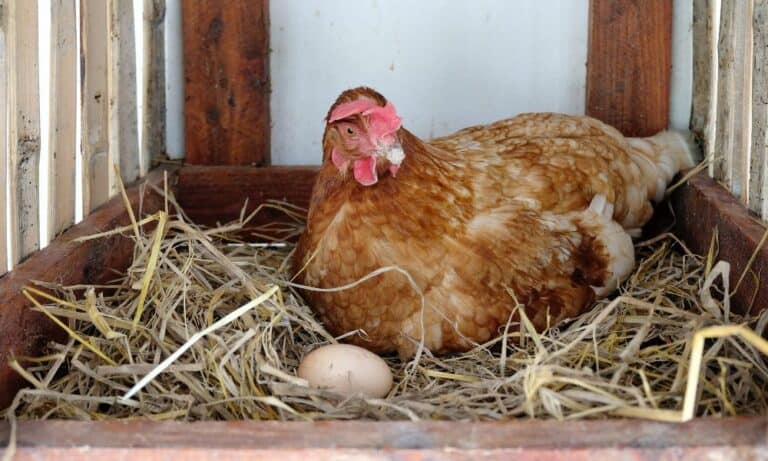If you have chickens, you’re probably fully aware of how beneficial it can be to provide your birds with occasional tasty snacks – they can gain extra nutrients, vitamins and minerals from them, and it also makes their lives more interesting by giving them a more varied diet.
However, most chicken keepers also know that there are some foods that need to be avoided, and it’s only natural to wonder if a food is safe before you feed it to them for the first time. So for anybody who wants to know, in this post, we answer the question, can chickens eat basil?
Can Chickens Eat Basil? The short answer
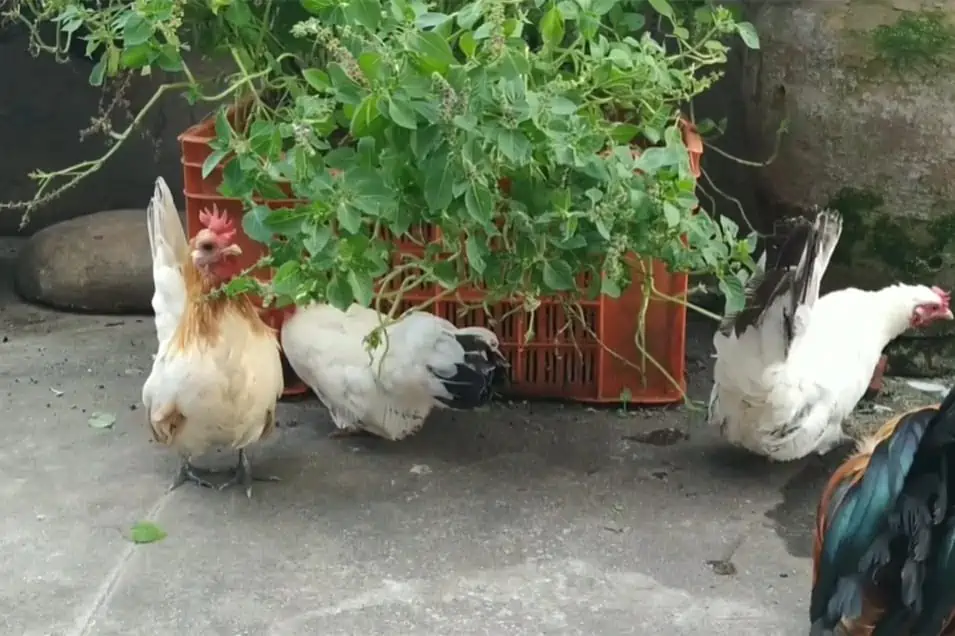
Let’s make things simple and start with a simple answer to a simple question.
Can chickens eat basil? Yes, they can.
And what’s more, as well as being a delicious snack that almost all chickens love, basil is also packed full of important vitamins and minerals, making it a great choice of treat to supplement their regular diet.
So now let’s look at this question in a bit more detail to find out just why feeding basil to chickens is such a great idea.
Is basil good for chickens?
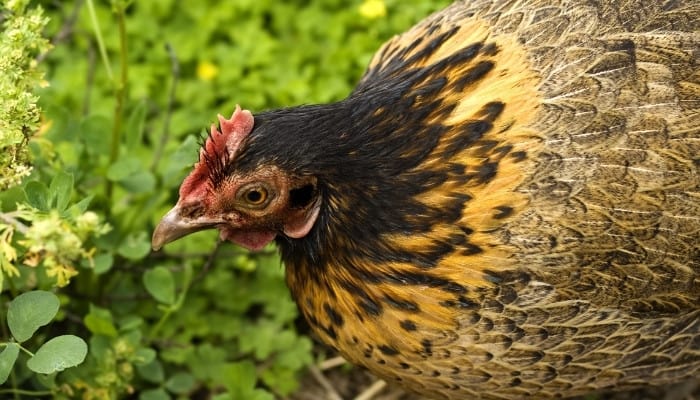
Basil includes a wide range of important vitamins and minerals, making it a highly beneficial food to humans and chickens alike.
It is an especially rich source of vitamin K, and it also contains good levels of vitamin A, beta-carotene, vitamin B6, folate and vitamin C – all of which are important for keeping your chickens in good health.
In terms of minerals, basil is also a particularly good source of manganese, but it also contains moderate to high levels of iron, calcium and magnesium – as well as lower levels of potassium and zinc – among others.
It is thought that eating basil helps with chickens’ mucus membranes and improves their respiratory health. It has antibacterial properties, boosting their immune systems, and it also works as an anti-inflammatory as well as aiding digestion.
Eating basil can help lower cholesterol levels, and it can help replenish healthy gut flora while also boosting blood flow.
It’s even believed that giving chickens basil can improve egg-laying productivity while at the same time making the eggs they lay more nutritious and even giving the eggs antioxidant properties.
So in short, giving chickens basil to eat has so many health benefits for them that if you didn’t know about them all before, you’ll probably be rushing out the door to buy some basil for your birds as soon as you finish reading this post!
Can chickens eat all kinds of basil?
When we talk about basil, we usually mean one particular type – but there are actually several different types of basil, so can chickens eat them all?
What most people think of simply as “basil” is the plant known scientifically as Ocimum basilicum that’s sometimes called “sweet basil” to distinguish it from other types.
However, other varieties include Thai basil (Ocimum basilicum thyrsifolium, a different variety of the same species) and holy basil (Ocimum tenuiflorum, a different but closely related species).
The good news is that chickens can eat all of these too, and the other types of basil all have broadly similar health benefits, so all of them can be fed to chickens.
Is there anything to avoid?
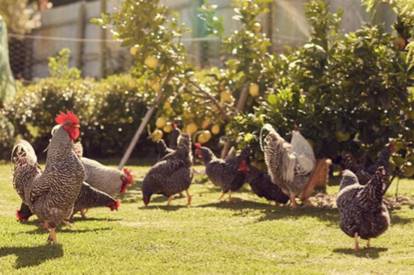
When feeding basil to chickens, there’s nothing you need to worry about or avoid.
Chickens can eat the leaves, but they can also eat the rest of the plant too, including the stems and the seeds.
Indeed, the seeds provide extra protein that isn’t present in the rest of the plant, so if you have basil plants that go to seed, you can encourage your chickens to munch on those too.
Perhaps the only thing to bear in mind is that if you buy non-organic basil from a store, it is likely to have been sprayed with pesticide, so you’ll need to wash the leaves thoroughly before giving them to your chickens to avoid any resulting health issues.
Far better is to buy organic basil that’s free of pesticides – but better still is to grow your own.
That way, you’ll know exactly what’s gone onto it, and you’ll know it’s 100% free of pesticides – and also that it’s 100% safe for your precious flock.
How to feed basil to chickens
There’s no particular trick to feeding basil to chickens since they can eat all parts of the plant, and unlike something like garlic, it’s not difficult to get them to eat it since they love the flavor.
You have a few options if you want to add a bit of basil to your chickens’ diet.
First, you can simply throw a handful of leaves into your chickens’ run for them to peck at – you can remove the leaves from the stems, or you can leave them on, as you prefer.
Alternatively, you can tie up a bunch of basil leaves on the stems at chickens’ head height for them to peck at. This will give them something interesting to investigate, helping to alleviate boredom while also delivering a powerful cocktail of nutrients, vitamins and minerals.
Another option is to chop up some basil leaves and sprinkle them into your chickens’ regular feed or include them with some other types of fruits and vegetables you give your birds as a treat.
This will ensure your chickens are receiving all the nutritional benefits basil has to offer while at the same time, making their food more appealing by changing the flavor and giving them a little extra variety in what they eat.
Just remember to remove any leftovers after feeding time has finished since old food can attract rodents and other pests.
Also, bear in mind that basil spoils quickly, so you’ll need to replace it frequently if you want your birds to continue enjoying all its benefits – as well as its delicious taste!
Can chickens eat other herbs?
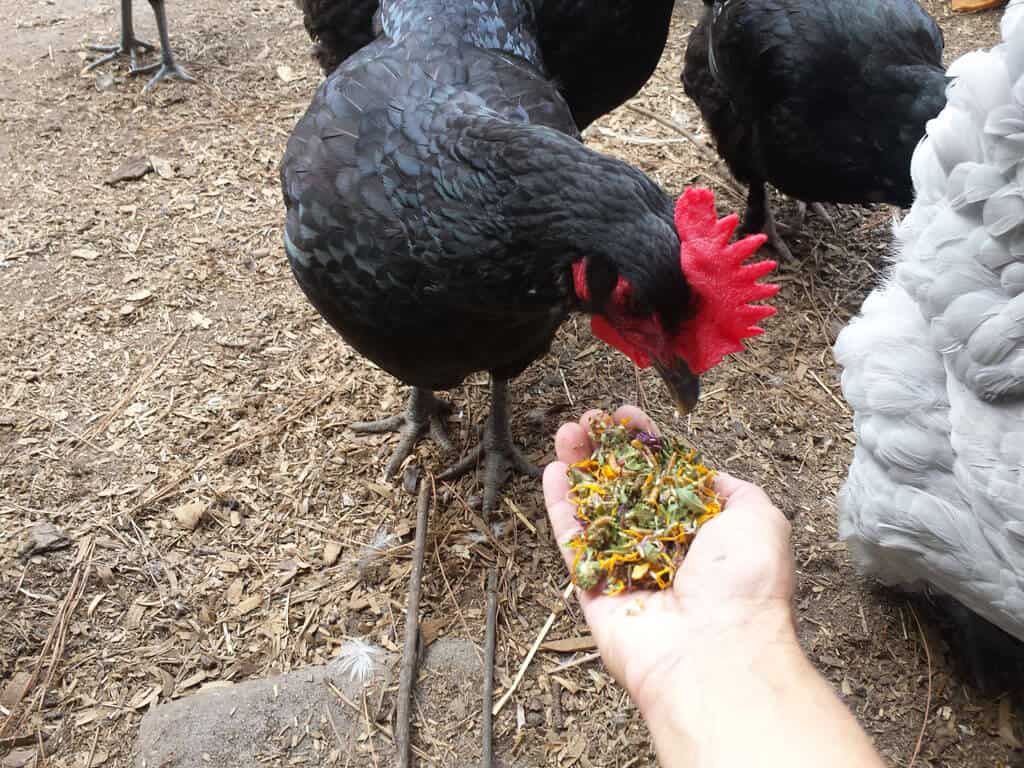
As well as basil, there are several other herbs that chickens love that also have beneficial properties. Here are some of the most common.
- Oregano
Oregano is a great herb for chickens to eat thanks to its ability to boost their overall health, their respiratory health and their egg-laying productivity.
- Sage
Sage has natural antiparasitic properties and can help discourage parasites from taking up residence in your chickens’ gut.
- Tarragon
Chickens enjoy eating tarragon, and it’s said that it also helps to keep them calm and relaxed.
- Thyme
As well as having a flavor chickens love, thyme is full of calcium, which is important for strong eggs, among other things.
- Rosemary
Rosemary is another herb with antiparasitic qualities, and it also works as a natural antibiotic.
- Lavender
Like rosemary, lavender acts as a natural antibiotic, and it also helps to keep your hens’ eggs fresh for longer.
Moderation
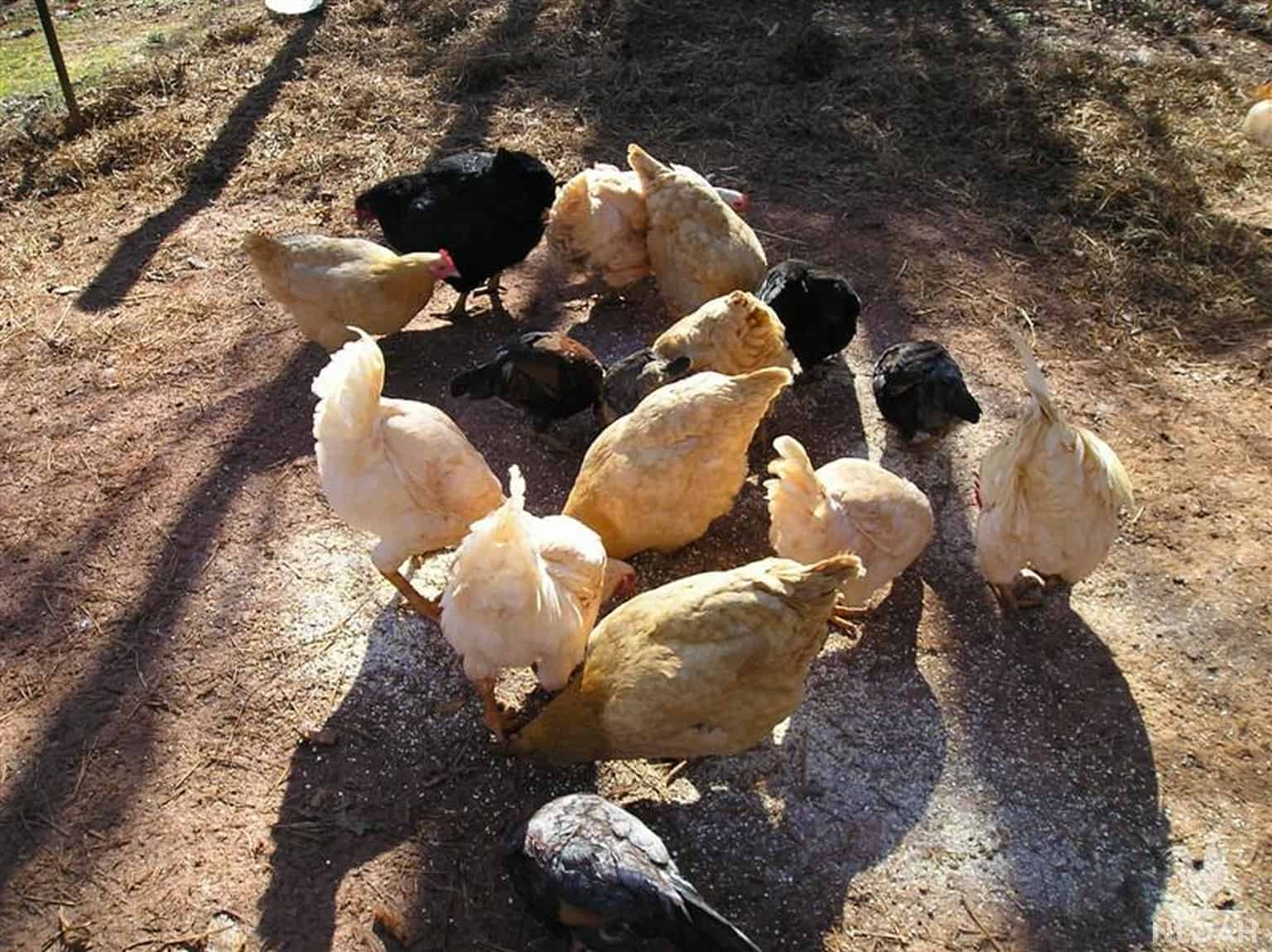
When feeding basil, other herbs or any other snacks to chickens, the most important thing to remember is that you should always give them treats in moderation.
Chickens have very specific dietary requirements, and if they don’t receive all the nutrients, vitamins and minerals they need, they won’t be as healthy as you want them to be.
If chickens don’t eat properly, it can affect their egg-laying output, and if things get worse, they can even become malnourished.
This is why commercial chicken feed is specially formulated to provide everything they need for a healthy and balanced diet – but of course, you can also supplement this with other occasional treats.
The thing to remember is that treats shouldn’t exceed 10% of their overall diet, with the other 90% consisting of their regular feed.
If treats make up more than 10%, there’s a risk that they will gorge on the treats and ignore their regular food, like a child who eats too much candy and then won’t touch their meal.
However, if you stick to a maximum of 10%, this should never happen, and your chickens will be happy to eat their regular feed, along with any treats you give them – including basil!
Pro tip – basil acts as a natural insect repellent
As well as all its amazing nutritional properties, basil also works as a natural repellent against a whole range of bugs, including – notably – mosquitoes.
This means if you plant basil in your garden, it will help reduce the number of mosquitoes buzzing around your home, and planting basil around your chicken coop will keep these biting insects away from your flock while also giving the chickens a readily available tasty snack.
Healthy, nutritious and delicious for chickens
So as we’ve seen, basil is both healthy and nutritious for chickens, and it’s also something most chickens seem to love eating, so if you have some leftover basil, or if you have some extra growing in your garden, feel free to give it to your chickens as a treat.
The most important thing to remember when feeding treats to chickens is that treats shouldn’t make up more than 10% of their overall diet. However, with basil alone, it would be hard to reach the 10% mark, so it’s fine to give your birds a handful of leaves every couple of days.

